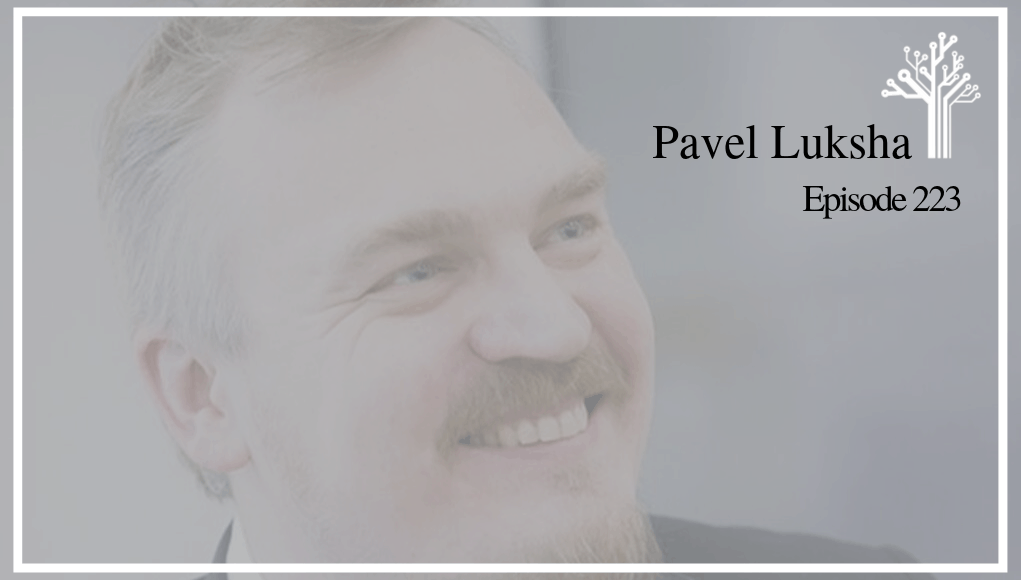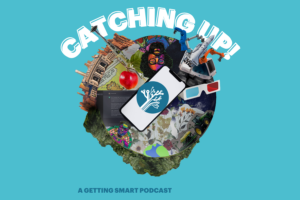Podcast: Pavel Luksha on Educating for Purpose, Potential, and the Planet

One of the leading education futurists, Moscow-based Pavel Luksha leads Global Education Futures. Tom caught up with Pavel in Europe recently where he outlined seven trends in learning.
1. Time for an upgrade. Global learning systems are embedded in societies undergoing a transformation. “We must consider the impact of technology, including AI and robotics, on the future of work,” said Luksha. “We need to upgrade models based on routinized learning and submission to authority. We need to expand human creativity.
2. Purpose and potential. We need to address the question of meaning, we need more purpose-oriented learning, more passion-driven learning. We need to discover who we are and what our potential is–this is the mission of education,” said Luksha. “We need to expand lifelong learning by creating all kinds of platforms that help address it.
3. Updated experiences. “We need pedagogies (for youth) and andragogies (for adults) that help us discover who we are–project-based, play-based, and game-based–that help us explore the world and our potentialities. Luksha sees Waldorf and other alternatives becoming models of 21-century education.
4. Better measures. Standardized assessment focus just on grade level assessment of cognitive abilities. Pavel thinks we need measures of creativity, appreciation, empathy, and the ability to connect with people. When we do “Revolutionary things will happen.”
“Companies like Google and Facebook profile us, they create our digital twins to sell us more of what we don’t need,” said Luksha. “Can we use these comprehensive profiles to benefit our citizens?”
5. Lifelong learning. The development of global networks like Whittle School gives Luksha hope that education can be one of the factors enriching and stewarding lifelong learning and global civilization. He sees local studios providing hobby education for all ages. Schools can become a place where citizens can discuss what’s going on. “We can cultivate the future with arts festivals
6. Learning Ecosystem. Luksha sees growth in learning ecosystems where diverse independent providers work together, weaving trajectories together.
“Some organizations can host, serve as a home for others,” explained Luksha. Some take the role of ecosystem gardeners, some the role of weave the system into a whole. They are not appointed, they are roles you take, it’s more serving than leading.”
7. Climate crisis. Pavel sees accelerating recognition of the impact of humans on the planet. Luksha proposed a University for the Planet to help build the global skills to connect with a common future. He envisions a system of 250 hubs around the world that will support lifelong learning for global citizenship (see feature).
Pavel is generative and synthetic futurist–he spots patterns, combines the best thinking from around the planet, and designs possible futures.
For more on Dr. Luksha’s work and Global Education Futures, see:
- On Creating a University for the Planet
- Skills of the Future: How to Thrive in the Complex New World
- Student Learning for Life: New Skills for New Jobs
- 20 Year Forecast: Broader Aims, Students at the Center
Key Takeaways:
[1:30] Pavel describes how he came to be a global education futurist.
[5:00] Pavel expands on his earlier statement that we need to do more to ask our civic leaders why we’re spending so much on preparing to kill each other rather than raising our children.
[6:15] Pavel highlights some global trends in education that are providing more meaningful learning experiences.
[12:51] Pavel gives his thoughts on the opportunity for a global network like Whittle School and Studios.
[16:05] Pavel shares his knowledge about learning ecosystems.
[23:00] The different levels of learning ecosystems and how they interact.
[27:59] What kinds of learning experiences help young people discover and cultivate a sense of purpose?
[31:48] What’s next for Pavel? What is he beginning to think about with his work?
[33:50] Pavel shares some information about a potential upcoming project he is incredibly excited about.
[37:07] Tom thanks Pavel for joining the Getting Smart Podcast!
Mentioned in This Episode:
Pavel Luksha (LinkedIn)
Moscow School of Management SKOLKOVO
Global Education Futures
Whittle School and Studios
Kauffman Foundation
The Grable Foundation
Remake Learning
The Commit Partnership
For more on the future of work, see






Patti Shade
Yes, yes, and yes! “ We need to expand human creativity.” #CreativeAgentsofChange